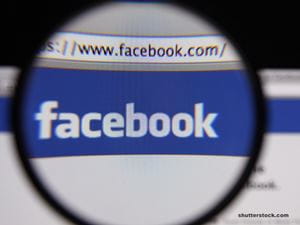
Given the wide variety of uses to which people put social media, it would make sense that people are online using it almost continuously. It often seems, however, like things have gone too far. Those who go without likes on their pictures for too long may feel unwanted, and being unfriended has been described as traumatizing. The obsession people have with social media is no accident. Social media was specifically and deliberately designed to be addictive. It has succeeded in this. People, especially young people, have begun developing very literal addictions to social media. They become anxious, depressed and irritable if they do not get their social media fix just like an alcoholic denied a drink or a smoker deprived of cigarettes.
Even when social media use does not rise to the level of addiction, it is still problematic for people’s health. People access social media through cell phone, tablet and computer screens. All of these are backlit by blue light that interferes with the production of melatonin, delays the onset of sleep and can keep a person from achieving deep, restful slow-wave sleep. Computers are usually used when a person is slouched in their chair, something that is terrible for a person’s health. Cellphones and tablets, on the other hand, are normally held in one hand. A person then stares down at them at an angle that puts upwards of 70 pounds of force on their neck. Small wonder that people complain of exhaustion and neck aches.
Social media also interferes with a person’s ability to be social. Children and teens become so used to interacting with each other over social media that they forget how to have a conversation with each other in person. As a result, young people tend to struggle with the soft skills valued by employers and necessary for successful interpersonal interaction. The reliance on social media can also lead to anxiety, depression and mental illnesses.
Facebook and its like are atrocious for people’s emotional and physical health. At least, a person’s spiritual health is safe from their interference, right? Wrong. Social media usage can start to hurt your faith depending both on how you use it and how often you indulge.
There are any number of social media pages dedicated to religion. Some are covered in quotes and images. Others are dedicated to helping people stay on track with plans for fasting, prayer and reading. Still others are meant to help people connect with others who share their faiths. These pages, however, are not enough to make social media usage a godly activity. Social media is addictive. It was specifically designed this way. Things that are addictive slowly but steadily begin to consume a person’s entire focus and attention. The energy a person was once dedicating to their faith is now being dedicated to Facebook or other social media.
Social media is a huge energy sucker, but it also hurts your perceptions of your own life. People tend to put the best of the best on social media. They only share good news or things that make them look good. Even those who revel in the drama or want people to pity them are careful in how they phrase the news they put on the internet. They want to evoke pity or spur gossip, not be ignored or dismissed.
This sort of obsession over how things appear and how other people think is enough to kill honesty and authenticity. It also forces a person to focus on this world and the fickle judgments humans use. This is not helpful when it comes to faith.
The fact that people put a careful spin on everything they post on Facebook and other social media can also lead a person to look at their own life in a negative way. Rather than seeing the multitude of blessings they have received over the course of their lives, they see only that someone else appears to be living a life that is even better than their own. This, of course, is a lie, but it is one that so many social media users believe. They truly think that other people have perfect relationships where there is never fighting, frustration or arguing over whose turn it is to go chase the raccoon away from the garbage cans. People really believe that everyone else is having the time of their lives every day. This, of course, makes people wonder what is wrong with their lives that they cannot find that sort of effortless happiness.
Social media is not inherently evil. It is a tool, and like any other tool, it is up to the people using it to decide how they will use it. Social media does, however, carry more risks than many other tools. It carries risks for a person’s physical health, mental well-being and social life. It carries risks for a person’s faith, and that is far too valuable to risk for nothing more than a few likes.

